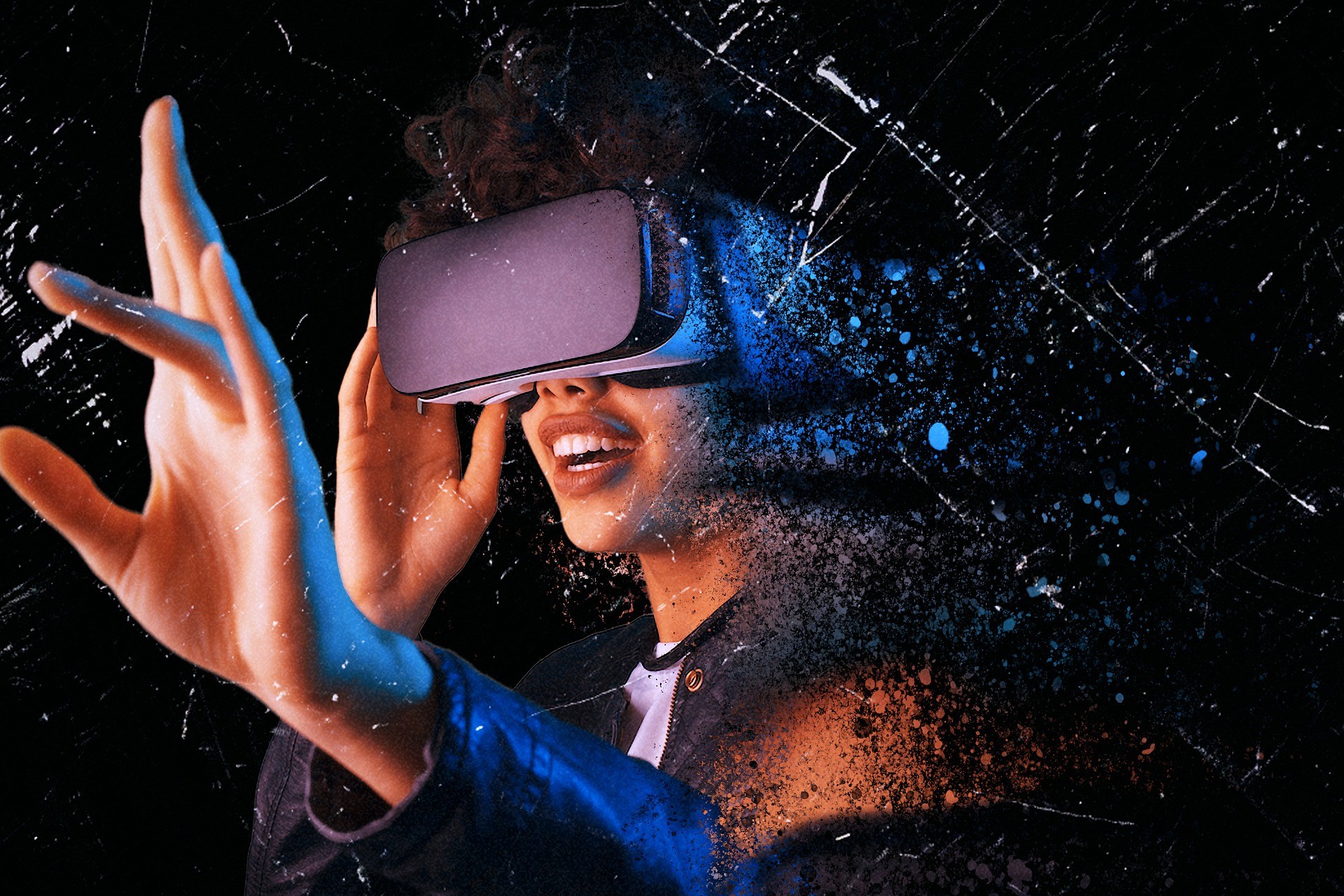By John Fernandes on Sep 23, 2022
~ 2 minutes to read
With new innovative uses across several sectors, emerging technologies continue to challenge our preconceived notions. For instance, the introduction of the internet altered how individuals exchanged correspondence. The internet is practically ubiquitous in our daily lives. With the help of the metaverse, you may now interact and feel like you are in a 3D environment on the internet.
According to Matthew Ball, The Metaverse is a collaborative virtual space where people can interact, visit and explore. It's designed to be a 3D space connected to the internet. The idea is that as more people join the Metaverse, it will become increasingly dynamic and immersive.
The Metaverse is not just a virtual reality (VR) world; it's also an augmented reality (AR) world where physical objects are mixed with digital content. A simulation of reality overlaid onto our world would exist within this Metaverse.
People can use their avatars in the Metaverse or choose from popular ones other users have created. Avatars are used as representations of you in this new world, so they can wear clothes, speak and interact with others in many different ways.
The metaverse development has been thrust to the fore in the early 2020s even though extended-reality gaming and social spaces have been around for decades. Technological advancements and societal changes brought on by the COVID-19 pandemic have sparked tens of billions of dollars in new investments and led to predictions that the metaverse will be "the future of the internet" or "the next internet battleground."
As we move into the next decade, many are expecting a host of new technologies that will change our lives for the better.
There are so many exciting technologies on the horizon that it's hard to track them all. And if you're not already familiar with some of these emerging technologies, they can seem like fringe concepts at best and science fiction at worst. But these technologies are real — and they're just getting started.
DeFi and NFTs are two emerging technologies that will likely have a major impact on the future of the metaverse.
The decentralized financial system, or DeFi, is a new model for how people can interact with their money. The most well-known example of DeFi is Bitcoin, but many others exist. The goal of DeFi is to create a peer-to-peer payment system that doesn't require an intermediary such as a bank or credit card company.
Non-fungible tokens (NFTs) are digital assets with unique attributes that cannot be copied or duplicated. You could think of NFTs as collectibles — like baseball cards, Pokémon cards, or Beanie Babies — except they can be traded on the blockchain using protocols like ERC721 and ERC1155.
Digital identity is a technology that will be used as an alternative payment method for meat products. This may allow consumers to pay for their meat using a digital wallet, eliminating fraud and theft issues. Digital identity can also be used to track food products from farm to table, making it easier for consumers to know where their food comes from.
Farmers and butchers will use augmented reality glasses to increase efficiency and reduce costs in their operations. These glasses can help farmers identify pests on crops, while butchers can use them to assist them with cutting meat or preparing ingredients needed for cooking meals.
Virtual reality headsets like the Oculus Rift and HTC Vive have been slow to catch on, but they've already made their mark on the metaverse.
Virtual reality headsets like the Oculus Rift and HTC Vive have been slow to catch on, but they've already made their mark on the metaverse. Technology has allowed people to experience what it's like to be a cow standing in a feedlot. The headset's motion sensors track your movements and translate them into the movement of your virtual avatar.
The result is an immersive experience that puts you in another person's shoes — or hooves — for an eye-opening look at what it's like to be an animal raised for food production.
One of the biggest challenges facing farmers is keeping animals healthy and well-fed. Farmers spend money on medicines, vaccines, supplements, and other products to keep their animals healthy, but there are still outbreaks of diseases such as swine flu or foot-and-mouth disease.
With IoT sensor technology, farmers can monitor their animals more effectively. They'll know when they're hungry or thirsty and how much food they've eaten so they won't overfeed their livestock or waste money on unnecessary products. In addition, they'll also be able to monitor their stress levels more accurately so they can avoid stressful situations like transport or slaughtering by providing them with better living conditions.
Bright prospects for the metaverse's future are evident from a clear perception of its potential. If you've wondered whether the "metaverse" is the next big thing, you should realize that it is unquestionably a significant technological development. The metaverse could alter how individuals communicate with one another, play video games, and go about their jobs.
The metaverse is still in its infancy despite having an infinite number of potential applications. Additionally, the presence of well-known tech companies like Microsoft and Facebook in the metaverse helps to build confidence in its future.
John Fernandes is content writer at YourDigiLab, An expert in producing engaging and informative research-based articles and blog posts. His passion to disseminate fruitful information fuels his passion for writing.